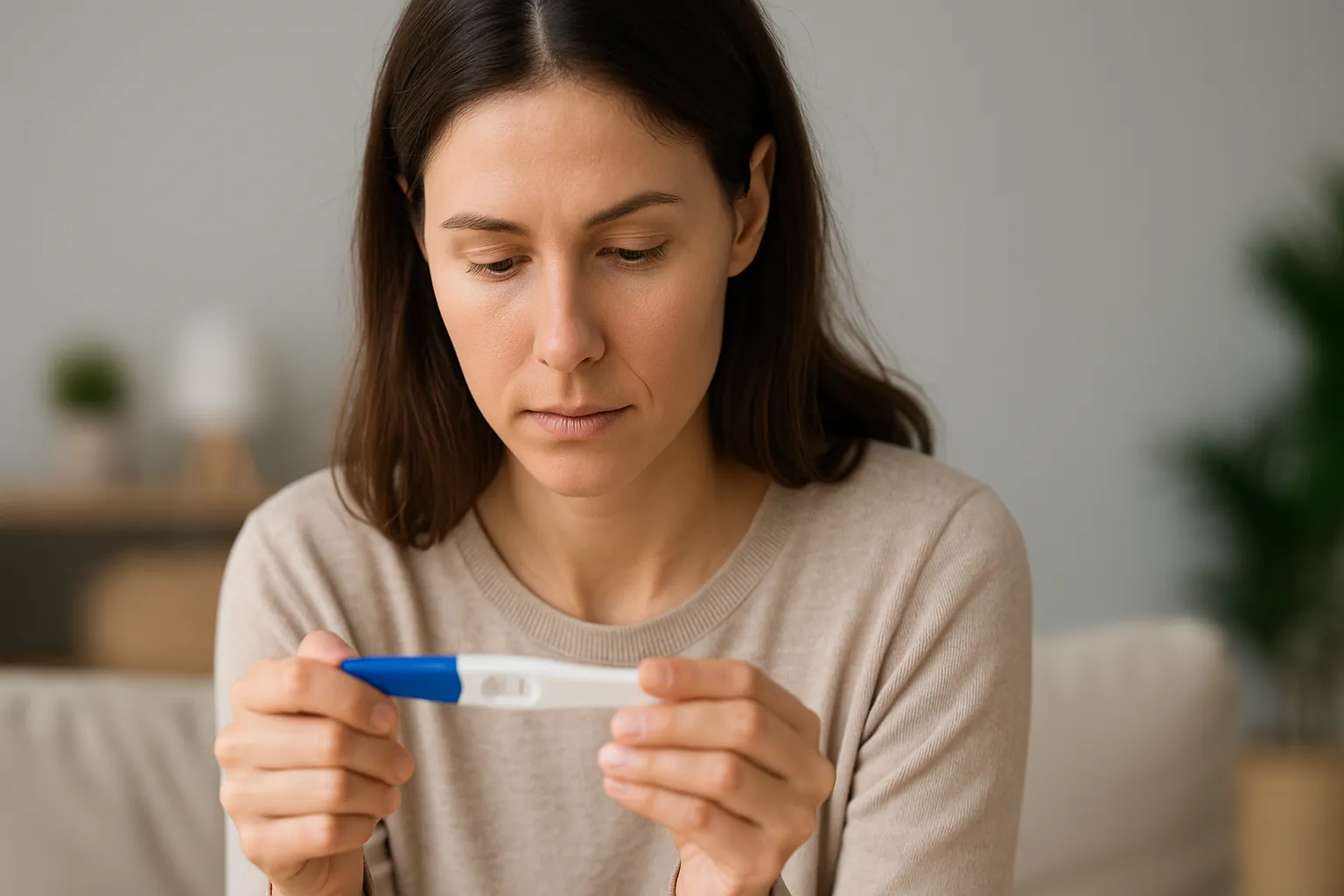Fertility is one of those topics that feels personal, emotional, and at times, downright confusing. You may have come across the term AMH level during a fertility checkup or while researching online, and wondered, “What is a good AMH level to get pregnant?” Whether you’re planning to conceive now or in the future, understanding your AMH levels can help give you more clarity and control over your fertility journey. And don’t worry, this guide won’t sound like a biology textbook. We’ll chat through it in plain English.
What Exactly Is AMH and Why Should You Care?
Before diving into the good vs. not-so-good AMH levels, let’s understand what AMH actually is. AMH (Anti-Müllerian Hormone) is a hormone produced by the follicles in your ovaries. These follicles contain eggs, and AMH gives doctors a sense of how many eggs you might have left, your ovarian reserve.
So essentially, AMH is like a little signal from your ovaries that says, “Here’s how stocked we are!” The higher the AMH, the more eggs you likely have. But here’s the twist: more doesn’t always mean better.
AMH Levels by Age: What’s Normal?
Let’s be honest, age plays a big role in fertility. Our egg count naturally declines over time. So, it makes sense that AMH levels by age also follow a pattern. Here’s a simplified AMH levels by age chart to help you understand where you might fall:
| Age | Average AMH Level (ng/mL) |
| 20–24 | 3.0 – 5.5 |
| 25–29 | 2.5 – 4.5 |
| 30–34 | 1.5 – 4.0 |
| 35–39 | 1.0 – 3.0 |
| 40–44 | 0.5 – 1.5 |
| 45+ | 0.1 – 0.5 |
These numbers can vary slightly depending on the lab, but they give a rough estimate.
What Is a Good AMH Level to Get Pregnant?
Alright, so let’s get to the golden question. A “good” AMH level for getting pregnant naturally is typically between 1.0 and 4.0 ng/mL. Here’s what the ranges generally mean:
- Above 4.0 ng/mL: May indicate polycystic ovary syndrome (PCOS) or a high ovarian reserve.
- 1.0 to 4.0 ng/mL: Considered normal and healthy for conception.
- 0.5 to 1.0 ng/mL: May indicate a lower ovarian reserve.
- Below 0.5 ng/mL: Could signal significantly reduced fertility.
But remember, AMH is only one piece of the puzzle. Plenty of women with low AMH conceive naturally, and some with high AMH still face challenges.
Is It Possible to Get Pregnant with High AMH Level?

Let’s bust a myth here. High AMH doesn’t automatically mean you’re super fertile. In fact, extremely high AMH levels (especially above 5 ng/mL) might be linked with PCOS. That means your ovaries may have many follicles, but they may not release eggs regularly.
So, is it possible to get pregnant with high AMH level? Yes, but it depends on your overall reproductive health. If your cycles are regular and there are no other complications, you can definitely conceive naturally or with assistance. However, if you’re dealing with PCOS, you may need to manage it through medication, lifestyle changes, or treatments like IUI or IVF.
How Do Doctors Use AMH Results in Fertility Planning?
Doctors don’t just glance at your AMH and give a yes/no answer. They look at:
- Your age
- Cycle regularity
- Other hormone levels
- Ultrasound reports (like antral follicle count)
- Your partner’s fertility profile
For those considering IVF or egg freezing, AMH is super helpful. It helps predict how your body will respond to stimulation, how many eggs might be retrieved, and whether it’s a good time to act.
Can You Improve Your AMH Levels?
Here’s the thing: AMH levels can’t be magically increased through supplements or diets. That said, maintaining a healthy lifestyle can help protect your ovarian function. This includes:
- Eating a balanced diet rich in antioxidants
- Avoiding smoking and alcohol
- Managing stress (yes, it does matter)
- Regular exercise
Some herbs and supplements may support hormone balance, but always consult your doctor before trying them. Also, check out our article on How to Get Fair Skin Fast Permanently at Home to see how lifestyle changes can affect many aspects of health, not just skin.
Low AMH Doesn’t Mean No Hope: Here’s Why
One of the most common misconceptions is that low AMH equals infertility. That’s just not true. Plenty of women with AMH levels below 1.0 ng/mL have had healthy pregnancies. It may take more time, or you might need some fertility support, but it’s far from the end of the road. There are several options:
- Trying naturally with timed intercourse
- Fertility treatments like IUI or IVF
- Using donor eggs if needed
You can also explore natural remedies for boosting overall reproductive health. Just like we shared tips on How to Cure Gastric Problem Permanently, you’ll find many useful lifestyle tweaks that support fertility too.
When Should You Get Your AMH Tested?
If you’re:
- Thinking about delaying pregnancy
- Experiencing irregular periods
- Having trouble conceiving
- Curious about your fertility health
…then it’s a good idea to ask your doctor about an AMH test.
It’s a simple blood test that can be done any day of your cycle and doesn’t require fasting.
What If You’re Just Curious About Future Fertility?
You don’t have to be trying to conceive right now to benefit from knowing your AMH. In fact, many people get it tested just to be informed and make long-term decisions, like whether to freeze eggs or not. Just like you don’t wait for health issues to learn How to Use Coffee for Skin Whitening, it’s smart to stay ahead and informed.
For any “what,” “how,” or “why” related to health and lifestyle, NutBolt India is your go-to guide. Think of it like a friendly hub for everyday clarity.
Final Thoughts:
To wrap it up, what is a good AMH level to get pregnant? Anywhere between 1.0 and 4.0 ng/mL is typically considered good, but that number isn’t the full story. Whether your AMH is high, low, or right in the middle, the most important step is understanding what it means for you, in the context of your overall health and goals. So don’t panic, get informed, talk to your doctor, and remember: one number doesn’t define your fertility.





